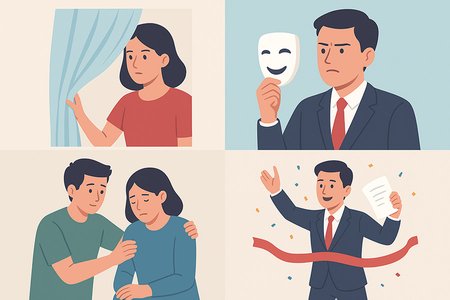| Phrasal verb | Main meaning |
|---|---|
see through [siː θruː] | to recognize the true nature of someone or something, especially to detect deception |
Other meanings
- to continue with something until it is finished (to see something through)
- to be able to see to the other side of something because it is transparent (literal: to see through a material).
- to help or support someone so they get through a difficult period
Example Sentences Using the Phrasal Verb "see through"
- I can see through his excuses.
- She promised to see the project through.
- The curtains were thin; you could see through them.
- He helped see her through the illness.
- Don't try to fool me — I will see through you.
Features of Using "see through"
- meaning depends on context: see through someone = detect deception; see sth through = finish/complete; see through (a material) = literal transparency; see someone through = support/help.
- separability: when the meaning is “finish/complete” the object often appears between verb and particle or after it (He will see the job through / He will see through the job — placement affects emphasis); when the meaning is “detect” or literal “look through” the particle behaves like an inseparable preposition (I can see through him / see through the curtain).
- register: neutral; common in both spoken and written English.
- learner tip: for “finish” use constructions like see it through or see the project through; for “detect” use see through someone/something.
🔗 Learn more about the irregular verb see, including its forms and usage.

